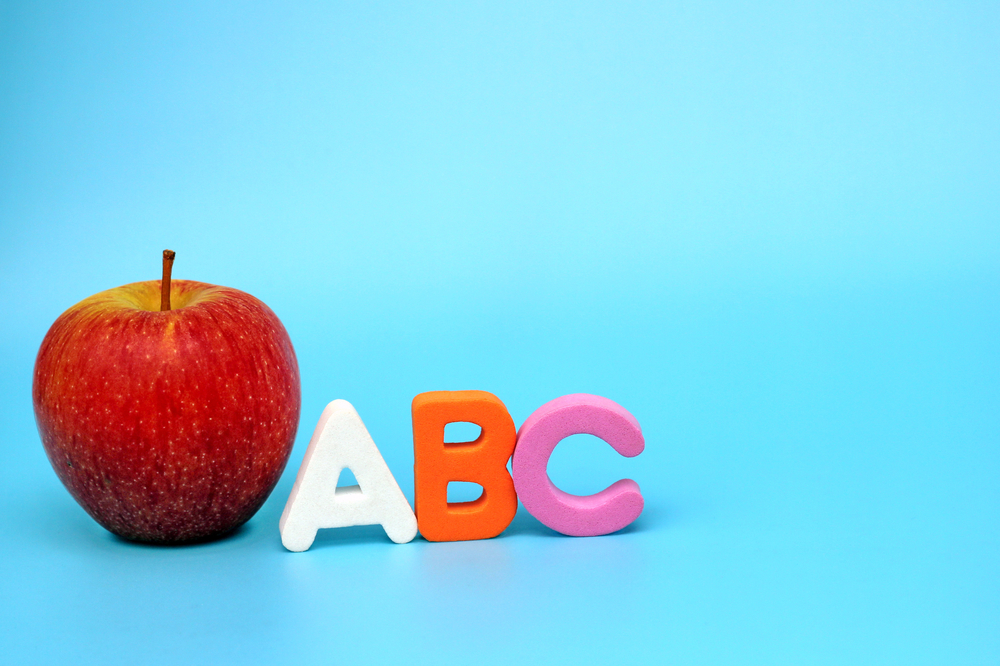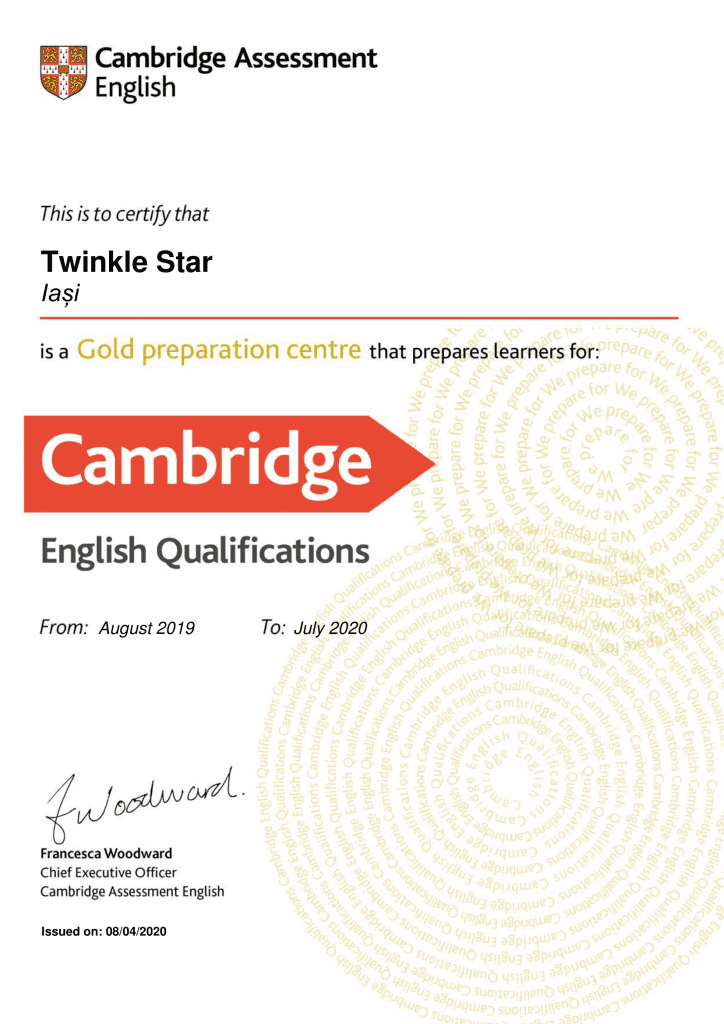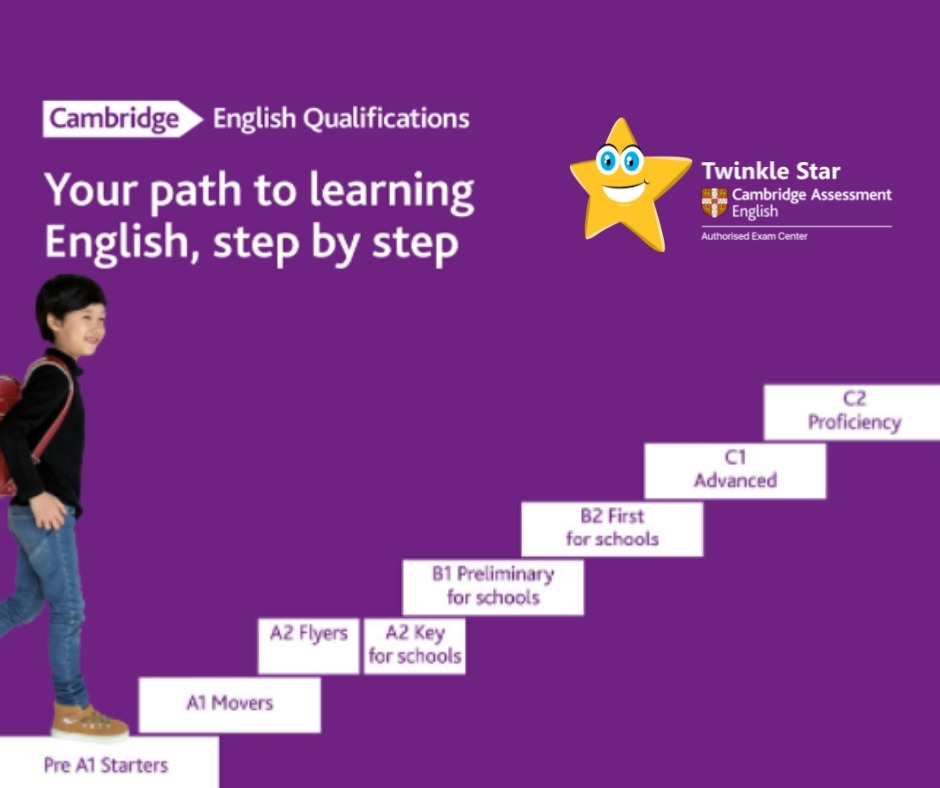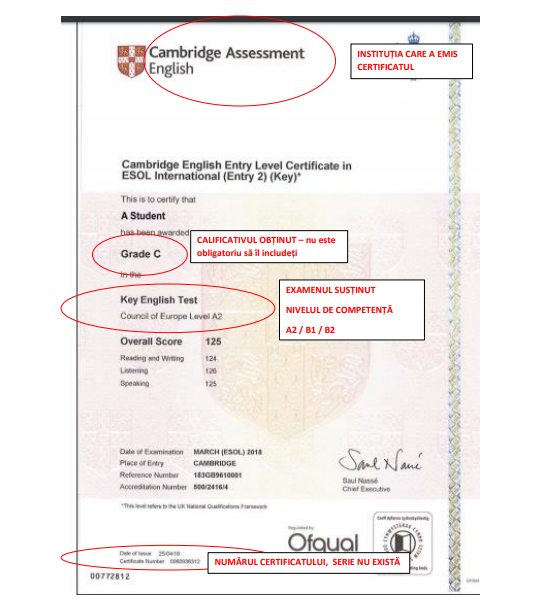IONELA JURVALE
MA in ELT Programme
Graduate of the 2019 class of the Programme : Lingvistica aplicata – didactica limbii engleze, „Alexandru Ioan Cuza” University of Iasi
ABSTRACT
This article aims to provide the first step towards a more in-depth study of reflection on teaching, which is a big issue in professional development. I chose to talk about such a topic because I felt the need for identifying the drawbacks of the lessons while teaching and finding ways to overcome them. Therefore, the article contains personal examples from the practicum and some reflections upon my teaching techniques and lesson plans composition. The ability to reflect upon one’s own teaching competences enables one to become a better practitioner. Another goal of the article is to prove that the feedback from the mentor as shaped in lesson plans and classroom practice feedback is a powerful resource in one’s process of reflection and analysis of skills. I will go through some general characteristics of reflection and its role in the process of teaching, Then, I will highlight some aspects of a lesson plan, followed by some of the mentor’s comments regarding them. Finally, I will point out some teaching issues and my reactions towards them and I will conclude with some possible topics for developing this subject.
1. GENERAL FRAMEWORK
A salient component which helps one to develop his/her teaching skills is the ability to reflect. In John Dewey’s words “one may have to learn to think well, but not to think” (1909, p. 29). In other words, one has to learn to reflect on his past experiences. Reflection makes reference to one’s capacity for looking back at the experiences and seeking ways of improving them. One can identify the issues, but not the solutions to them. Because of this, it is of primary concern to have a close eye to our professional development. And one can develop it by paying particular attention to self-analysis of skills. To reflect on something means to be able to see the strengths and weaknesses of the thing in discussion and to use specific strategies to overcome the difficulties encountered. Moreover, by thinking carefully at the past teaching experiences, one can reshape the content delivered and can provide a better form. Furthermore, one has to take into consideration all the details which had led to the outcome, either good or less useful in order to reach the stage of reflection. Details like reactions from the people involved in the task, or personal emotions can be interesting to investigate and improve the practices.
APPROACHES TO REFLECTION
McGregor et al. note that reflection “often begins when you pause to ‘think back’…you re-play the happenings, incident or event in your head, and, in thinking more about it, it begins to change from a sequence of chronological events into a series of questioning thoughts such as ‘What happened?’ ‘When?’ ‘How?’ (2011, pp. 1-2). However, the questions are more purposeful when they are developed in the way of: “Why did it happen that way?” “How could I have done differently?” Such questions lead automatically to seeking ways of performing better next time.
Reflection refers to teacher identity. That means that through reflection, teachers continually think of the kind of tutor they wants to be and, by adapting to the students’ needs and by seeking new ways of motivating and involving them, their identity enriches.
When somebody reflects in-action he/she is able to identify the problems while he/she is teaching and adapts or changes his/her practice depending on the situation. Reflecting on-action involves thinking about ways of improving the lesson next time. Also, to reflect denotes consciousness, being considered “a strategy for learning about teaching” (Haynes, 2010). However, a unique or clearer definition of reflection does not exist; as Copeland et al. (1993) note “just as the concept of teaching can, and indeed does mean different things to different people in different situations, so too does the concept of reflection and the image of the teacher as a reflective professional” (McLaughlin & Hanifin, 1994, p. 3).
2. THE ROLE OF REFLECTION IN THE PROCESS OF TEACHING
Reflection is or should be part of the process of teaching. According to Dewey, there are seven characteristics of the reflective teaching. In his view, reflective teaching requires an active concern with aims and consequences, as well as means and technical efficiency; it is applied in a cyclical or spiralling process, in which teachers monitor, evaluate and revise their own practice continuously; it requires competence in methods of evidence-based classroom enquiry, to support the progressive development of higher standards of teaching; it requires attitudes of open-mindedness, responsibility and wholeheartedness; it is based on teacher judgement, informed by evidence-based enquiry and insights from other research; it is enhanced through collaboration and dialogue with colleagues, and it enables teachers to creatively mediate externally developed frameworks for teaching and learning (Pollard, 2008, pp. 14-15).
Teachers commonly organize their work according to three criteria: 1. planning and preparation; 2. classroom management, teaching, learning; 3. assessment, evaluation and review. However, as reflection intervenes when the teacher looks back at the lesson and identifies its strong and weak points, Haynes’ view of teaching as a three-step activity may seem to miss something because it encourages one to think that the third step, which deals with evaluation and review, is the end of the process. In reality, this step helps one to identify the issues from the lesson and seek ways of improving them. Therefore, reflecting on how it went and on students’ feedback helps in seeing “what’s been grasped properly and what one will need to revisit and revise with them next lesson” (Haynes, 2010, p. 1).
We should see the three-steps of teaching as a spiral and not as a linear process because each time we return in the same place, but better informed than we were before due to the reflective questions posed. Of course, not everybody can reflect and develop a better lesson plan and better classroom management. Dewey (1909) mentions at a certain point that thinking is natural for humans, but reflective thinking needs to be taught.
No matter how much an individual knows as a matter of hearsay and information, if he has not attitudes and habits of this sort, he is not intellectually educated. He lacks the rudiments of mental discipline. And since these habits are not a gift of nature (no matter how strong the aptitude for acquiring them); since, moreover, the casual circumstances of the natural and social environment are not enough to compel their acquisition, the main office of education is to supply conditions that make for their cultivation. The formation of these habits is the Training of Mind (1909, p. 28).
3. A REFLECTIVE ANALYSIS OF A LESSON PLAN
Teaching experience should allow the trainees to reflect upon what happened in class while teaching. One can do this after receiving the mentor’s feedback or by identifying the weak and strong points of the lesson together with the mentor. This can also be achieved by asking the trainee to recall the happenings by himself/herself and share some impressions and feelings. In respect to that, I have to mention that I received feedback from the mentor, but I was also asked to reflect upon my teaching and identify the problematic points of the lesson.
The beginning trainee has to learn many things, for example, from providing clear instructions to encouraging the learners. McGregor et al. identify very well the issues encountered at the beginning of the teaching career:
When starting out on a teaching experience or practice, you may feel that there are some skills you already have, but recognize that others need development. You may, for example, need to think about how to address a group, or how far to go in your explanation of fractions, or even what to say to learners to help them see how they are progressing (2011, p. 2).
Therefore, NQTs[1] need help in the form of suggestions and comments so that they can progress.
In my case, the feedback I received from my mentor after the lesson I am analysing in this paper has served this purpose very effectively. In 2017, 14th of December, I taught the lesson Types of houses, rooms and areas to 10th graders whose level was upper-intermediate (B2). The main issue of this particular lesson regards the aims and objectives I proposed in the lesson plan.
Reflecting on-action, but also counting on my mentor’s feedback, now I can say that the aims and objectives in my lesson plan were not very specifically defined. For instance, the objective ‘to use prepositions properly’ is confusing because it is unclear what particular prepositions are meant to be used properly by the students. The objective is very general and it does not refer to anything distinctive. The context for this objective is as follows: the students were asked to fill in the blanks while listening to me describing a house. Indeed, they heard some prepositions because the sentences contained such items (i.e. Next to the house is a _____; and they had to complete with the word shed). But, the students were not asked to focus on the prepositions, but on some vocabulary items. Now I know that this objective should not have been stated, or at least, it should have been subsidiary, the focus being on other features, like, for instance, ‘to use vocabulary related to the topic’ and ‘to use hypothetical structures (I wish…; If I could… I would)’. The last one is relevant in the way in which, after dealing with that particular activity in which students listened to me describing the house, they were asked to describe their ideal house and use certain hypothetical patterns.
Besides my thoughts of my own practice, my mentor’s feedback proved to be very valuable in this context. Her comments were also that the aims and objectives were not clearly defined. That is why, after I taught the lesson and counting on the lesson plan, the mentor helped me to see where the focus should be put and what features should be taken into account in a class. The revised aims of the lesson following the mentor’s feedback are: ‘to describe buildings’; ‘to talk about students’ preferences (houses, locations)’ and the objectives are to: ‘use vocabulary words related to houses, rooms and areas’ and ‘use hypothetical structures’. This list is complete and specific.
4. REFLECTIONS ON MY MENTOR’S FEEDBACK
Many times a trainee teacher cannot recognize the drawbacks of a lesson by himself and it is easier to become conscious of the weaker points through objective mentor-assessment. Thus, the mentor’s feedback is the outside element which helps one in improving his/her skills. Feedback may be materialized in the form of comments, suggestions, recommendations, etc. Because, sometimes, if managed poorly, feedback may lead to misunderstandings, and in this way, to criticism that may turn into arguments, some people may think of the negative connotation of it. In order to benefit from it, one has to not let that affect him and see only the positive aspects. And I think that in this lies the development as a professional – in the way in which one perceives the feedback, constructive or not.
Another interesting suggestion from my mentor was that I should pay more attention when it comes to handling transitions. Due to that comment, and after having reflected on that, I concluded that in order to have smooth transitions from one classroom activity to another one students should be conscious of the changes in the classroom. I tried to recall how the lesson tasks were performed and I remember that, indeed, the students seemed confused when being asked to solve another activity because they were not told that the prior one finished. Students should be told: ‘Now, we’re done with this activity, and we’re going to do something else’. The instructions should be clear and focused so that the learners can concentrate better on each task.
Thus, besides consulting many reference books which help the NQTs to deal with the initial problems of teaching, they should be open to suggestions in order to find out different ways of grasping the basics of teaching. Even discussing the issues with more experienced professionals helps in becoming a better practitioner.
5. PROFESSIONAL DEVELOPMENT
In order to become a professional, there is needed, as McGregor identifies “the application of ‘intelligent action’, experimenting in the way you respond to situations through ‘reflection-in-action’ and ‘reflection-on-action’ ” (2011, p. 6). Thus, the novice can become a professional by looking back and reflecting upon what happened, but also, by being open-minded to receive well the comments and recommendations from the more qualified authorities.
One can conclude that “the process of reflective teaching supports the development and maintenance of professional expertise” (Pollard, 2008, p. 5), being a fundamental process in enhancing professional development. Pollard further adds that “reflective teaching should be personally fulfilling for teachers, but also lead to a steady increase in the quality of the education provided for children” (p. 5).
Also, we, as students who observe the teacher while he is teaching develop a sense of consciousness why he used some strategies and not others and by reflecting on teacher’s skills and techniques, one can enrich his own list of behaviors and approaches.
For students, however, developing a professional mind often begins the first time they find themselves in the back of a classroom having to observe a lesson no longer through the lens of a student, but through the lens of an aspiring teacher. Thus, in order to develop as professionals, students need to learn to observe not what teachers are teaching, but how they teach the material (Devos, 2014, p. 20).
Moreover, observation has to be carefully prepared, as Richards and Farrell (2005) comprise: “if observation is to be a positive experience […] it needs to be carefully planned and implemented” (p. 88).
6. RECENT REFLECTIONS ON LESSON PLANS AND CLASSROOM PRACTICE
Through reflection, I discovered that reading the exercises’ instructions is students’ job. Learners should be made aware that reading the tasks is their duty and instead of reading them the instructions, they should be asked: ‘What are you supposed to do? Read the instructions carefully and tell me what you have to do’.
Additionally, another strategy that I learned is the one which turns a ‘crisis situation’ into a learning opportunity. I will provide you with an example from the practicum. The lesson was about fruit and vegetables and the students were in the 3rd grade. Students were required to solve some matching and completion exercises. At a point, a student asked me about the fruit pomegranate, but in Romanian. It was out of what I had planned to do. However, when I heard this, I redirected the question to the entire class and I found out that nobody knew the answer. Therefore, that turned out into a learning opportunity because the students’ awareness was activated.
CONCLUSIONS
Reflection is, as I have demonstrated in this article, a key aspect which enables one to improve his/her teaching skills so that pupils’ learning is enhanced. Moreover, the mentor’s feedback on students’ practice constitutes the objective assessment which helps future teachers to reflect on action for improving their learning objectives.
Either one chooses to self-reflect upon his/her practices, or to discuss with a colleague or with a more experienced authority, the process of reflection should always be in the people’s view. By closely evaluating and observing the prior experiences, one can find answers to the ‘what’ and ‘why’ questions, and, in this way, to transform next experiences in better practices.
Bibliography
Devos, N. J. (2014). A framework for classroom observations in English as a Foreign Language (EFL) teacher education. Journal of Language and Linguistics Studies, pp. 17-28.
Dewey, J. (1909). How we think. New York: D. C. Heath & Co Publishers .
Haynes, A. (2010). The Complete Guide to Lesson Planning and Preparation. Continuum International Publishing Group.
McGregor, D. (2011). What can reflective practice mean for you …and why should you engage in it? In D. McGregor, L. Cartwright, D. McGregor, & L. Cartwright (Eds.), Developing Reflective Practice. A guide for beginning teachers. Open University Press.
McLaughlin, D., & Hanifin, P. (1994). Empowering the Novice: Promoting Reflection in Preservice Teacher Education.
Pollard, A. (2008). Reflective Teaching.Evidence-informed Professional Practice (3rd ed.). New York: Continuum International Publishing Group.
Richards, J. .., & Farrell, T. S. (2005). Professional development for language teachers. New York: Cambridge University Press.
Spalding, E., & Wilson, A. (2002). Demystifying Reflection: A Study
of Pedagogical Strategies That Encourage Reflective Journal Writing. Teachers
College Record , 1393-1421.






































